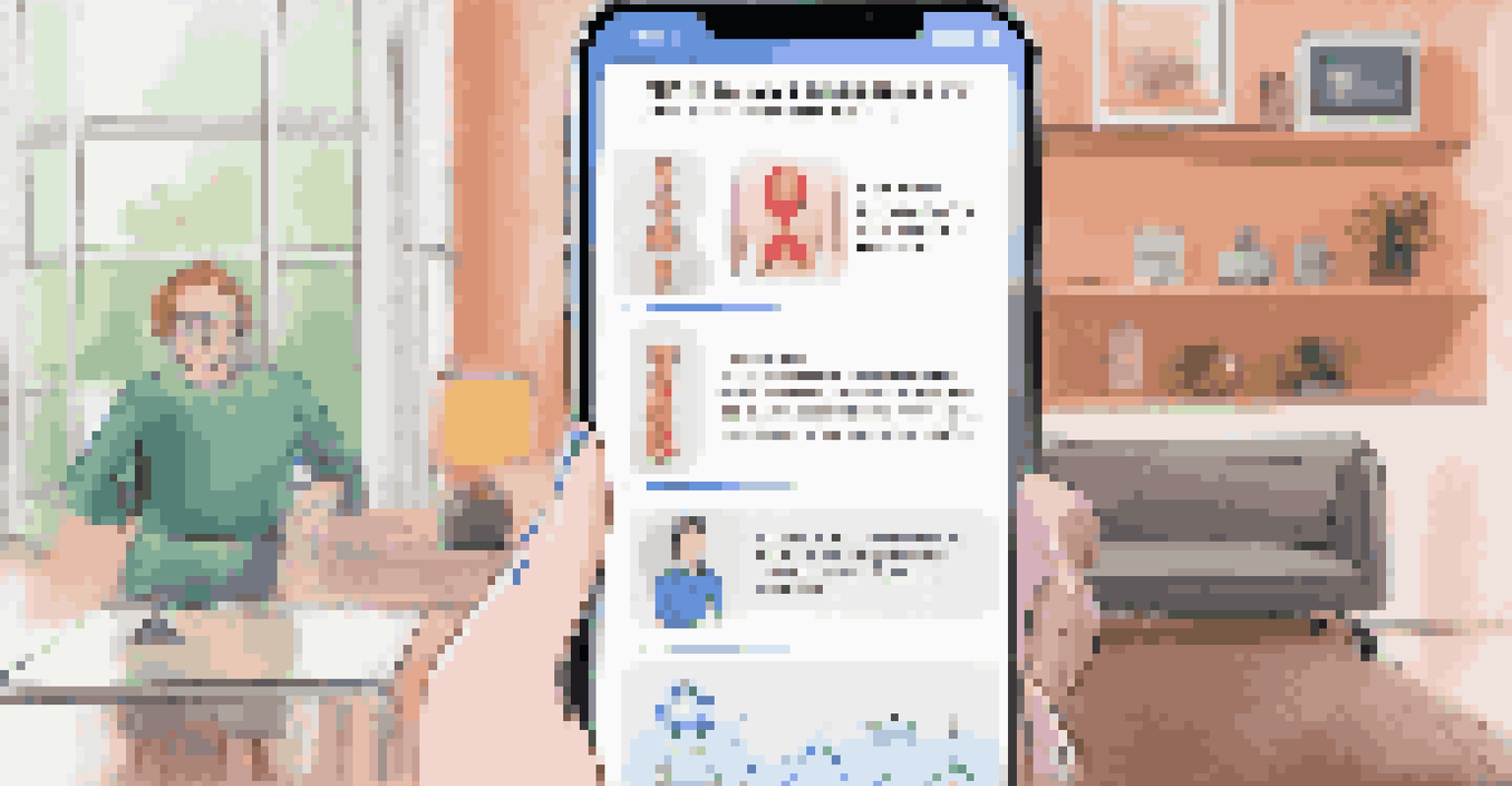AI for Health Communication: Enhancing Doctor-Patient Interaction

Understanding AI's Role in Health Communication
Artificial Intelligence (AI) is rapidly changing the landscape of healthcare, particularly in how doctors and patients communicate. By harnessing data and predictive analytics, AI can streamline interactions, leading to more efficient consultations. This technology can help decode complex medical jargon, making it easier for patients to understand their health conditions.
The greatest medicine of all is to teach people how not to need it.
Imagine walking into a doctor's office and receiving personalized information tailored just for you, thanks to AI. This could mean getting instant access to your medical history or personalized treatment options based on your unique needs. The goal is to bridge the gap between medical professionals and patients, ensuring clarity and understanding.
As AI evolves, it promises not just to assist doctors but also to empower patients. With better communication tools, individuals can take an active role in their health management, leading to improved outcomes and satisfaction.
AI-Powered Chatbots: 24/7 Patient Support
One of the most accessible forms of AI in healthcare is the chatbot. These digital assistants are available around the clock to answer questions, provide information, and even schedule appointments. They can handle common inquiries that might otherwise bog down office staff, allowing for a more efficient flow of communication.

Imagine having a health query at 2 AM and getting instant responses without waiting for the office to open. Chatbots can provide immediate assistance, reducing anxiety and ensuring patients feel supported. This constant availability fosters a sense of trust and reliability in healthcare services.
AI Transforms Health Communication
AI streamlines doctor-patient interactions by simplifying medical jargon and providing personalized information.
Moreover, chatbots can collect initial health information before a patient meets with a doctor. This pre-consultation data can streamline the process, allowing healthcare providers to focus on what truly matters during the visit.
Telemedicine: AI Enhances Remote Consultations
Telemedicine has gained immense popularity, especially in recent years, and AI plays a crucial role in making remote consultations effective. Through advanced algorithms, AI can analyze symptoms shared by patients during virtual visits, helping doctors make informed decisions faster. This technology not only saves time but also minimizes the need for unnecessary in-person visits.
Artificial Intelligence is the new electricity.
Picture a scenario where you can discuss your symptoms from the comfort of your home, while AI assists your doctor in diagnosing your condition. This kind of integration means that healthcare is more accessible, particularly for those in remote or underserved areas. Everyone deserves quality care, regardless of location.
In addition, AI can help tailor follow-up care based on the outcomes of virtual consultations, ensuring that patients receive ongoing support. This continuity of care is vital in managing chronic conditions and improving overall health.
Personalized Health Recommendations through AI
AI's ability to analyze vast amounts of data allows for personalized health recommendations, which can significantly enhance doctor-patient interactions. For instance, AI can suggest lifestyle changes or treatment plans tailored to an individual's medical history and preferences. This personalized approach fosters a collaborative environment between patients and doctors.
Consider how a patient with diabetes could receive specific dietary recommendations based on their unique health data. Instead of generic advice, they get tailored insights that resonate with their lifestyle. This not only boosts patient engagement but also improves adherence to treatment plans.
Chatbots Enhance Patient Support
AI-powered chatbots offer 24/7 assistance, addressing patient inquiries and improving access to healthcare services.
Furthermore, personalized recommendations can be updated in real-time, offering patients the most relevant information as their health evolves. This dynamic communication reinforces the patient-doctor relationship and encourages proactive health management.
AI and Patient Education: Making Complex Concepts Simple
One of the key challenges in healthcare is ensuring patients fully understand their conditions and treatment options. AI can aid in this process by breaking down complex medical concepts into simpler terms. Through engaging visuals and interactive content, AI-driven tools can enhance patient education.
Imagine a patient learning about their diagnosis through an AI-powered app that uses animations and easy-to-understand language. This approach not only makes learning more engaging but also ensures that patients retain crucial information. Knowledge empowers patients to make informed decisions about their health.
Moreover, AI can provide ongoing education tailored to individual needs, addressing specific questions as they arise. This continuous learning journey helps build patient confidence and encourages open communication with healthcare providers.
Data Privacy: Balancing AI and Patient Trust
While AI has the potential to revolutionize health communication, patient trust remains a top priority. Concerns about data privacy and security can hinder the adoption of AI tools. Healthcare providers must ensure that patient information is protected while leveraging AI to enhance communication.
Consider how reassuring it is for patients to know that their data is secure and used ethically. Establishing clear policies on data usage and ensuring transparency can help bolster trust in AI technologies. Patients need to feel confident that their personal health information is in safe hands.
Personalized Care Through AI
AI enables tailored health recommendations and education, fostering collaboration between patients and healthcare providers.
By prioritizing privacy and actively engaging patients in discussions about data security, healthcare providers can foster a trusting relationship. This trust is essential for successful AI integration in health communication, ultimately benefiting both patients and providers.
The Future of AI in Doctor-Patient Interaction
As AI technology continues to advance, the future of doctor-patient interactions looks promising. We can anticipate more seamless communication tools that cater to individual needs, making healthcare more efficient and patient-centered. The evolution of AI will likely lead to even greater advancements in personalized care.
Imagine a future where AI not only assists in diagnosis but also predicts health trends based on patient data, enabling proactive interventions. This forward-thinking approach could transform the way healthcare is delivered, shifting from reactive to preventive care. The possibilities are vast and exciting.

Ultimately, the integration of AI into health communication is not just about technology; it's about improving the human experience in healthcare. By enhancing interactions between doctors and patients, AI can pave the way for a healthier future for all.